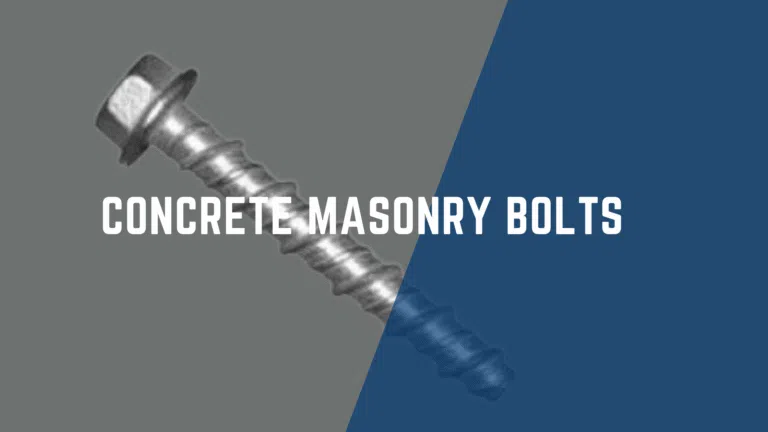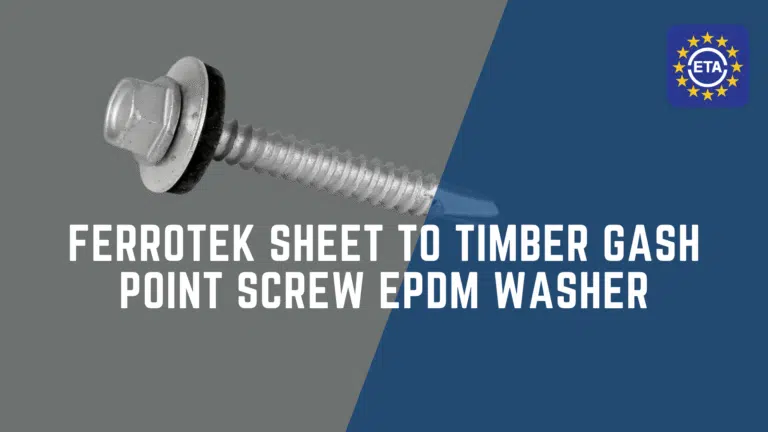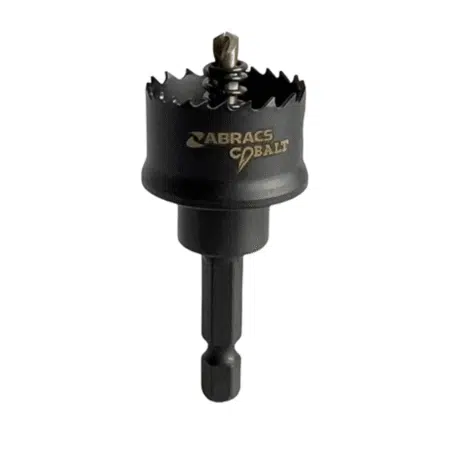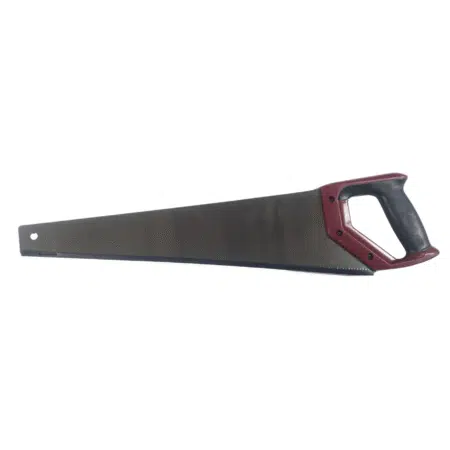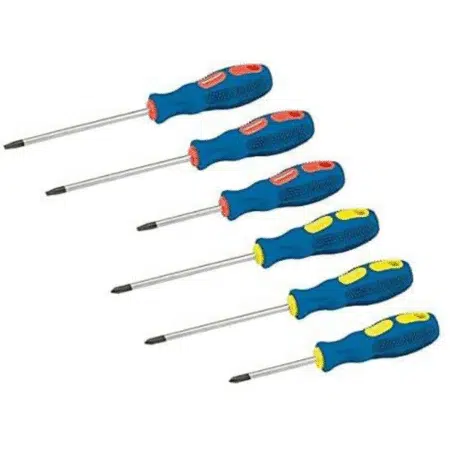With a growing emphasis on structural integrity, it’s imperative to understand how concrete masonry bolts can significantly enhance safety in your projects. While not certified, these bolts offer exceptional performance by providing robust fastening solutions that hold up under challenging conditions. You can greatly reduce the risk of structural failure by choosing the right type for your application, ensuring that your constructions are not just sturdy but also reliable. Explore how utilising these bolts can lead to safer, more durable structures in your endeavours. Moreover, it is crucial to follow the proper concrete masonry bolt installation steps to maximize their effectiveness and maintain structural integrity. By adhering to these guidelines, you can ensure a secure and lasting bond that withstands the test of time. As a result, your projects will not only meet safety standards but also exceed performance expectations, providing peace of mind for everyone involved. Additionally, the durability of concrete masonry bolts plays a crucial role in maintaining the longevity of your structures. By resisting corrosion and adapting to varying environmental conditions, these bolts sustain their strength over time, further contributing to the overall safety of your projects. Investing in high-quality concrete masonry bolts not only enhances immediate structural support but also ensures a reliable foundation for years to come.
Key Takeaways:
- Concrete masonry bolts provide enhanced structural integrity, offering superior anchorage for heavy loads in construction applications.
- Even though these bolts may not be certified, their design and material quality can still contribute significantly to safety when installed correctly.
- Regular inspection and maintenance of concrete masonry installations are vital to ensure ongoing performance and safety over time.
 The Role of Bolts in Structural Integrity
The Role of Bolts in Structural Integrity
Bolts serve as vital components in maintaining structural integrity, acting as the primary connectors between various building elements. They facilitate the necessary load distribution, ensuring that forces such as tension, shear, and compression are effectively managed within a structure. When properly installed, bolts create a robust framework that enhances stability and durability. Your choice of bolt, particularly in concrete masonry, significantly affects performance and safety, influencing how the entire assembly responds to stresses and dynamic loads over time.
The Mechanics of Connection
The mechanics behind bolt connections lie in how they interact with surrounding materials. Bolts create clamping force, which holds parts together while resisting separation. This interaction is enhanced by factors like bolt grade, thread pitch, and material properties. For your construction projects, selecting the appropriate bolt is key, as it determines how well the assembly can endure external forces. In essence, the right choice promotes a cohesive and reliable structural framework.
Uncertified vs Certified: What You Need to Know
Understanding the difference between certified and uncertified bolts is important for your safety considerations. Certified bolts meet rigorous testing standards, ensuring reliability in various structural applications. In contrast, uncertified bolts may lack adequate testing, potentially leading to performance uncertainties. For critical applications, opting for certified fasteners can offer peace of mind.
Certified bolts undergo extensive quality assurance processes and testing protocols that guarantee their performance under predefined conditions. You might encounter uncertified options that could be tempting due to lower costs, but the risks associated with compromised structural safety often outweigh short-term savings. For instance, using uncertified bolts in high-load applications could lead to catastrophic failures, jeopardising not only the structure but also the safety of those using it. Thus, investing in certified bolts ensures that your construction adheres to industry standards and ultimately fosters safety and longevity.
The Advantages of Non-Certified Concrete Masonry Bolts
Non-certified concrete masonry bolts present distinct advantages that can enhance your construction projects. Their widespread availability and less strict manufacturing regulations often result in lower costs while still providing reliable performance. You can achieve desirable results without compromising on structural integrity, making them an appealing choice for various applications. Additionally, many manufacturers offer a range of concrete masonry bolt specifications that cater to diverse project requirements, ensuring versatility in design and application. By selecting the right specifications, you can optimize the performance of the bolts for your specific use case, whether it’s for residential or commercial settings. This flexibility can ultimately lead to improved project outcomes and cost efficiencies.
 Cost-Effectiveness in Large Projects
Cost-Effectiveness in Large Projects
In large-scale projects, cost-effectiveness can significantly impact your bottom line. Non-certified concrete masonry bolts generally come at a reduced price compared to certified alternatives, allowing you to allocate funds to other critical areas of your project. This financial flexibility makes these bolts particularly attractive when you’re managing extensive builds that require a substantial number of fastening components.
Increased Flexibility in Design and Application
Utilising non-certified concrete masonry bolts allows for greater design flexibility in your projects. These bolts can accommodate various applications, which means you can experiment with innovative designs without being limited by stringent certification requirements. Your design choices become more expansive, enabling modifications and adaptations to suit unique construction needs, enhancing both creativity and functionality in your projects. By understanding how concrete masonry bolts function, you can make informed decisions tailored to your specific project requirements. Concrete masonry bolts explained provide insight into their structural advantages and applications, ensuring that your designs not only meet aesthetic goals but also achieve the necessary strength and durability. This knowledge fosters confidence in pushing design boundaries, ultimately leading to innovative and robust construction solutions.
As you explore the increased flexibility in design and application offered by non-certified concrete masonry bolts, consider how they encourage creativity and adaptability. With fewer restrictions, you can implement unique fastening solutions specific to your project requirements. Whether adjusting bolt lengths, thread types, or installation techniques, these bolts empower you to tailor your approach—maximising structural performance while keeping your design intentions intact. This adaptability can foster innovation, allowing you to meet specific challenges while providing robust anchorage for various materials and components.
Risks and Considerations
Despite offering significant benefits, using non-certified concrete masonry bolts can pose various risks that you must consider. Their reliability and safety may remain unverified, potentially leading to issues down the line. Without the assurance of testing, you could face structural failures which might result in serious safety hazards and costly repairs. Understanding these potential issues helps you make informed decisions when selecting fastening systems for your projects.
Potential Structural Compromises
Utilising non-certified concrete masonry bolts can lead to serious structural compromises. If the bolts fail to perform adequately, your overall structure may become vulnerable to unexpected loads or dynamic forces such as wind or seismic activity. A compromised connection could ultimately diminish the structural integrity of your project, posing risks to both safety and functionality.
Impact on Long-Term Durability
The longevity of your construction project hinges significantly on the fasteners you choose. Non-certified concrete masonry bolts may not withstand the test of time, leading to issues such as corrosion or loosening over an extended period. Such degradation can result in weakened connections, ultimately compromising the durability of the entire structure. To ensure the longevity of your project, it’s essential to follow concrete masonry bolts durability tips, such as selecting high-quality materials and employing proper installation techniques. Regular inspections and maintenance can further mitigate the risk of deterioration, helping to preserve the integrity of your structure. Investing time in these practices will ultimately safeguard your investment and enhance the overall performance of your build.
Without certification, the materials and manufacturing processes of non-certified bolts may not meet the appropriate standards for environmental resistance. For instance, exposure to moisture can accelerate rusting, while extreme temperatures may affect the strength of the fasteners. If your construction lies in high-risk areas, such as coastal regions where salt exposure is a concern, opting for non-certified alternatives could endanger the long-term performance of your structure. Investing in certified bolts ensures your project remains resilient, safeguarding your investment for years to come.
Practical Applications: When to Use Uncertified Bolts
In certain low-stress applications, uncertified concrete masonry bolts can safely support structures while remaining economical. These bolts suit temporary installations, lightweight fixtures, or where engineering oversight confirms their adequacy. Always assess specific loads and environmental conditions before deciding on their use to ensure reliable performance without compromising safety.
 Ideal Scenarios for Safe Implementation
Ideal Scenarios for Safe Implementation
Situations such as the attachment of non-structural elements, like signage or decorative features, are ideal for uncategorised bolts. They can also be beneficial in internal construction phases when loads are minimal, allowing flexibility and cost savings while maintaining acceptable safety margins for the task at hand.
Industry Perspectives on Usage
Within the construction industry, the usage of uncertified bolts is often debated. While some professionals advocate for their use in specific scenarios, others highlight the inherent risks associated with their reliability, especially in high-stress applications.
Industry professionals typically argue that while uncertified concrete masonry bolts can be appropriate in low-load circumstances, oversight and risk assessment are paramount. Opinions vary based on past experiences; some report successful application without issues, whilst others caution against potential failures that could arise from unforeseen loads or environmental factors. Engaging with industry standards and ongoing training can help you make informed decisions about bolt usage, recognising when uncertified options might suffice and when full certification is non-negotiable.
Building a Case for Increased Regulation
The increasing prevalence of non-certified concrete masonry bolts highlights the need for stronger regulations in construction standards. As more stakeholders express concerns about structural integrity and safety, the push for legislative frameworks that mandate certification grows stronger. Implementing a robust regulatory environment can enhance safety, promote industry accountability, and ultimately protect lives and investments in infrastructure.
Stakeholder Opinions on Standardisation
Various stakeholders, including architects, engineers, and contractors, offer differing perspectives on standardisation. While many advocate for uniform regulations to ensure safety and performance, others argue for flexibility to encourage innovation. This divide prompts ongoing discussions at industry forums, where balancing safety and creativity remains a common theme.
The Future of Non-Certified Construction Practices
The future of non-certified construction practices may face significant challenges in the wake of increasing scrutiny from governing bodies and industry advocates. As the demand for safety escalates, practices that lack proper certification may become less viable, leading to potential phasing out of certain materials and techniques. Industry leaders predict that this shift could foster more opportunities for innovative, certified alternatives that prioritise both safety and efficiency.
In the coming years, non-certified construction practices may increasingly fall under the spotlight as regulations tighten and public awareness grows. Projects using uncertified bolts and materials will likely face heightened scrutiny, compelling builders to reassess their sourcing decisions. The demand for assurance in construction will lead to a surge in certified product offerings, pushing manufacturers to adapt and innovate. Ultimately, this evolution could result in enhanced safety standards while phasing out outdated and unsafe practices, benefitting both current and future construction projects.
To wrap up
To wrap up, by opting for concrete masonry bolts, even those not certified, you can significantly enhance the structural integrity of your projects. These bolts provide reliable anchorage and support, ensuring that your structures can withstand various stresses. When properly installed, they contribute to the overall safety and durability of your builds, giving you peace of mind. Investing in quality materials and understanding their applications will ultimately benefit your construction efforts and lead to successful outcomes.
FAQ
Q: What are concrete masonry bolts and how do they function?
A: Concrete masonry bolts are specialised fasteners designed for use in concrete and masonry applications. They work by anchoring themselves into the substrate, providing stability and strength for various structural elements. Typically made from high-strength materials, these bolts create a secure hold that can be used for both indoor and outdoor projects.
Q: Are concrete masonry bolts (not certified) safe to use in construction?
A: While concrete masonry bolts that are not certified can offer a level of structural safety, their use may not meet specific building regulations or standards. It is important to assess the load requirements and environmental conditions of your project. For critical applications, using certified bolts ensures compliance with safety regulations and construction codes.
Q: What are the advantages of using non-certified concrete masonry bolts?
A: Non-certified concrete masonry bolts can be cost-effective and readily available for various construction tasks. They may also provide adequate strength for less demanding applications, such as securing lightweight structures or temporary installations. However, it is crucial to evaluate their suitability for your specific needs based on the project scope. Additionally, it is important to review the concrete masonry bolts specifications to ensure they meet the necessary performance standards for your project. Keep in mind that while these bolts may be sufficient for certain applications, each project may present unique challenges that require a more robust solution. Consulting with a structural engineer can provide valuable insights into which type of fastener will best meet your construction needs.
Q: How do I select the right concrete masonry bolts for my project?
A: Selecting the appropriate concrete masonry bolts depends on several factors, including the load requirements, the type of material being fastened, and the environmental conditions. It is advisable to consult technical specifications, and if necessary, seek advice from a structural engineer to ensure the chosen bolts will achieve the desired safety and performance outcomes.
Q: What alternatives exist to concrete masonry bolts for enhancing structural safety?
A: There are various alternatives to concrete masonry bolts, including expansion anchors, adhesive anchors, and sleeve anchors. Each option has its own set of advantages depending on the application. Expansion anchors are ideal for heavy loads, while adhesive anchors offer exceptional bonding strength. Evaluating the specific needs of your project will help determine the best fastening solution.
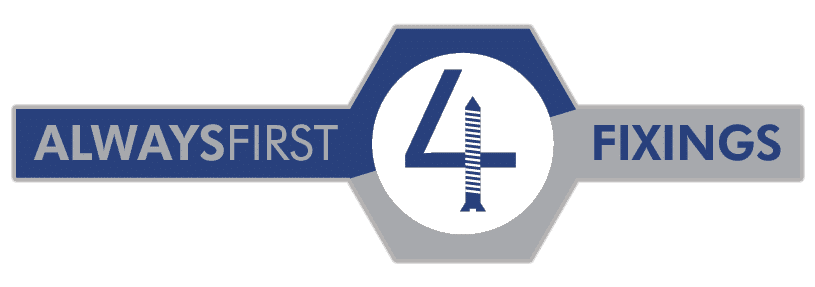
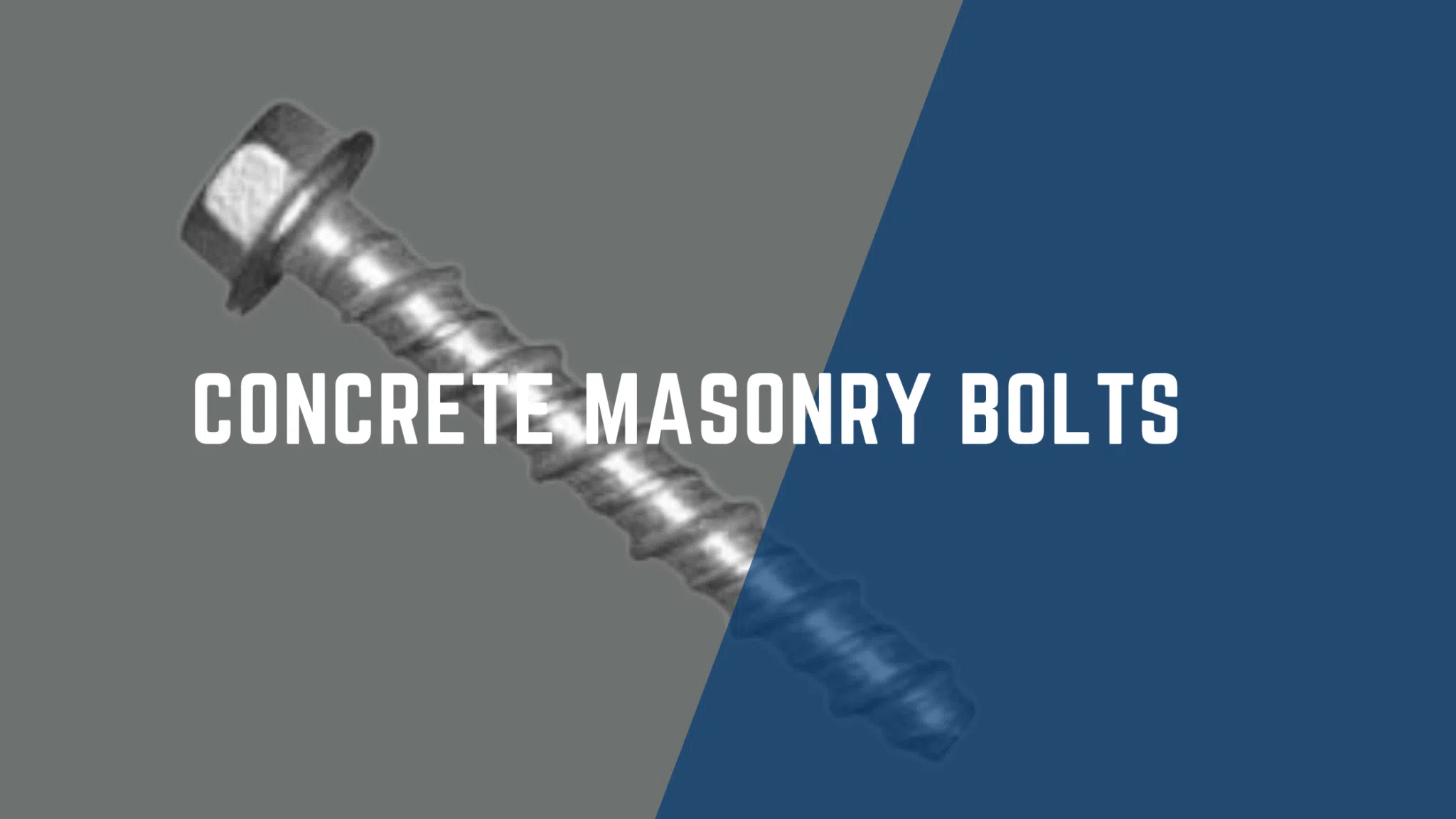
 The Role of Bolts in Structural Integrity
The Role of Bolts in Structural Integrity Cost-Effectiveness in Large Projects
Cost-Effectiveness in Large Projects Ideal Scenarios for Safe Implementation
Ideal Scenarios for Safe Implementation

